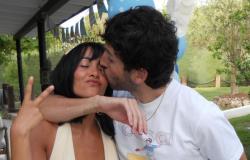It does not seem to me that this is the time to insist on the value of books by established authors, since their publishers, advertising, culture sections and literary supplements have already paid enough attention to them, sometimes with good reason (Gabriel Garcia Marquez, Ramiro Pinilla, Eduardo Mendoza, Antonio Muñoz Molina, Luis Landero, Fernando Aramburu and Arturo Pérez Reverte), to different degrees, and many others, without it.
I am going to focus on Spanish fiction, the subject that I think I know a little better, with some recommendations on translated Catalan fiction, in which I move capriciously.
In this diary I have dealt in recent months with the books of Irene Solà (I gave you my eyes and you looked at the darkness, Anagrama), with the suggestion that whoever can, should read it in its original version, in Catalan; of Andres Neuman (little talker, Alfaguara), about the miracle of starting to hear a child speak; of the fun and quirky stories of Luis Mateo Diez (The limbo of cinemas, Nordic); from the story book Ricardo Menendez Salmon (The furniture of the worldSeix Barral), although recommended as a whole, I would highlight two that seem memorable to me: To our loves and Life on fire; and the historical novel of Raul Quinto (Shadow King’s Hammer, Jekyll&Jill). I want to insist, above all, on this latest novel, since it won the Critics’ Prize in April, without the national media paying any attention to it, nor did they review it at the time, more attentive to the insubstantial fashions of the day.
Of the rest, I will cite a few more titles. They are books that I have read and appreciated, some of which will appear reviewed here in the coming weeks. It’s about the short narrative (Gutenberg Galaxy), by Luis Martin-Santos, in the careful edition by Domingo Ródenas de Moya, which collects his stories and short stories, many of them unknown; of the Venetian newspaper (Forcola), from Angel Crespoin the care of Jordi Doce and Ignacio García Crespo, where he tells us about his experience as a professor at the University of Venice, his connections with Italy; the tales of strange couples (Menoscuarto), from Cristina Peri Rossi, from his first new narrative book, after receiving the Cervantes Prize; the novel The handsome ones (Anagram), of Esther García Llovet, with limited space and a few singular characters, as is the case in all of his films, and with an excellent beginning; the novel of Carmen Riera a white shadow (Alfaguara), which deals with generosity, abuse and justice, which is also available in its Catalan version; from the fictionalized biography of Ramiro Pinilla, The Arrigunaga Sea (Tusquets), work of Maria Bengoa, who was his partner during the last years of his life; and the brave and attractive memoirs – when a critic tells about his life it is always news, because it is so unusual – of Carlos Boyero, I don’t know if I explain myself(Espasa), written in collaboration with the journalist Borja Hermosowith whom I share, in addition to the fascination for a type of cinema, the rejection of artistry, as well as the aversion for drugs of the cell phone, the scooter and the bike, which have colonized the sidewalks, and the misuse of so-called social networks.
I also want to add two studies that seemed very accurate to me: that of Yolanda Morató (Manuel Chaves Nogales. The lost years [1940-1944], Renaissance), with new contributions on the life and work of the Sevillian journalist and writer; and the one coordinated by Joan Oleza (Iberian keys to the Civil War. Memories and narratives, Renaissance), an essential book, from the theoretical, historical and analytical point of view, on what was the literature that has the civil war as its theme. I also think the compilation of interviews with writers that has just appeared in the Montesinos publishing house, with the title of The voices of Chimerathe magazine in which they were published during the 80s.
I can’t say anything yet, since I haven’t read them yet, about the new novels by Luis Mateo Diez, Clara Uson, Gonzalo Hidalgo Bayal either Mario Cuenca Sandoval, just to name a few books that catch my attention, and about which I hope to be able to write in this diary.
Finally, I would highlight the novel by José Luis Martín Nogales (A better world to live in, Menoscuarto), about the 11M attacks, focusing on the history of terrorists. And of course any of the books Francisco Ricoteacher of philologists and literary historians, who died recently, but they could be his anthologies of poetry or stories, or his editions of Petrarch’s prose, The Celestine, The Quijotehe Lazarillo de Tormes either The Knight of Olmedo.
Don’t miss the infoLibre signings at the Madrid Book Fair
see more
P.S. And since we are at the Book Fair, I suggest you visit the booth Horseeditora small Colombian publishing house, from Bogotá, specialized in books on literature and sports, which runs Luis Alejandro Diaz.
______________________
* Fernando Valls He is a professor of Contemporary Spanish Literature at the Autonomous University of Barcelona and a literary critic.






